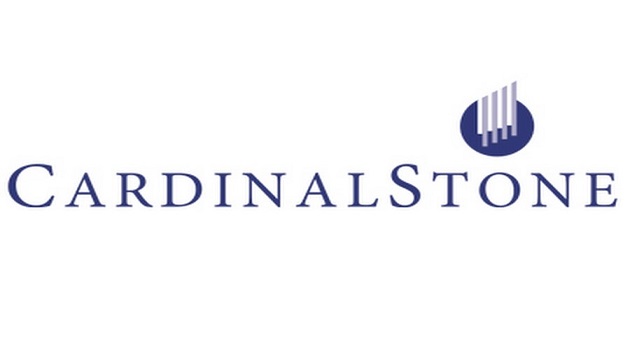E-Financial
Fidelity Bank, Mastercard launch cross-border payment solution in Nigeria

Fidelity Bank Plc, a leading financial institution in Nigeria and Mastercard have collaborated to launch Fidelity Send, a new initiative to enhance cross-border payments and remittances in Nigeria.

L – R: Kari Tukur, Vice President, Customer and Solutions Center, West & East Africa, Mastercard; Kevin Ugwuoke, Executive Director/Chief Risk Officer, Fidelity Bank Plc; Folasade Femi Lawal, Country Manager, Mastercard; and Osita Ede, Divisional Head, Product Development, Fidelity Bank Plc; at the launch of Fidelity Send powered by Mastercard at the Fidelity Bank headquarters on Friday, 30 August 2024.
Nigeria CommunicationsWeek reports that the collaboration leverages Mastercard’s extensive global network to facilitate near-real-time and cost-effective outbound transactions, driving financial inclusion in the country.
The new solution utilizes Mastercard Cross Border Services—a leading money transfer platform that allows participating banks to use the global Mastercard network to send money safely and securely to beneficiary bank accounts across the world.
Read Also: Fidelity Bank Trains 1,276 Women in Digital and AI Skills
Individuals and businesses using Fidelity Bank branches and digital platforms now have access to near-real-time funds delivery to over 60 countries.
Cross-border remittances continue to play an important role in Africa’s economy, with flows to Sub-Saharan Africa increasing by approximately 1.9% in 2023 to $54 billion, with Nigeria accounting for 38% of the flows.
In 2024, remittance flows to the region are projected to increase by 2.5%, presenting significant opportunities for businesses to expand their services and tap into the growing market of financial transactions across borders. However, limited banking infrastructure, high fees, and long processing times hinder adoption.
This collaboration aims to address these challenges by providing a faster, more reliable, cost-effective, and transparent solution with lower fees, no landing fees, wider management options, and guaranteed funds delivery—aligning perfectly with the evolving needs of customers.
Osita Ede, Divisional Head, Product Development at Fidelity Bank Plc, said: “Our collaboration with Mastercard to introduce Fidelity Send demonstrates our commitment to meeting our customers’ business and lifestyle needs through carefully designed products and services.
“We are pleased to offer our valued customers a quick and seamless means of receiving or transferring funds globally via a range of service touchpoints.”
Fidelity Int’l Transfer is designed to bridge the gap in cross-border payments by providing the Fidelity Bank’s growing customer base with an enhanced banking experience.
This solution also addresses the key challenge of managing foreign currency fluctuations during international money transfers.
Folasade Femi-Lawal, Country Manager, West Africa, Mastercard, said: “We are honored to collaborate with Fidelity Bank to introduce innovative solutions that offer greater choice, security, and flexibility to individuals and businesses in Nigeria.
“Through advancements in payment technology, we aim to empower people and enhance financial inclusion for millions in underserved communities.”
In recent years, Mastercard has amplified its efforts to facilitate better access to cross-border payments in Nigeria and across the continent, in line with its commitment to bringing one billion individuals into the digital economy by 2025.
This collaboration with Fidelity Bank strengthens this initiative and enables both parties to connect and power an inclusive digital economy that benefits everyone, everywhere.
Ranked as one of the best banks in Nigeria, Fidelity Bank is a full-fledged commercial bank with over 8.3 million customers serviced across its 251 business offices in Nigeria and the United Kingdom as well as on digital banking channels.
The bank has won multiple local and international awards including the Export Finance Bank of the Year at the 2023 BusinessDay Banks and Other Financial Institutions (BAFI) Awards, the Best Payment Solution Provider Nigeria 2023 and Best SME Bank Nigeria 2022 by the Global Banking and Finance Awards; Best Bank for SMEs in Nigeria by the Euromoney Awards for Excellence 2023; and Best Domestic Private Bank in Nigeria by the Euromoney Global Private Banking Awards 2023.
E-Financial
SERAP Gives CBN 48-Hour Ultimatum to Withdraw ATM Fee Hike

Socio-Economic Rights and Accountability Project (SERAP) has called on the Central Bank of Nigeria (CBN) to immediately revoke its recent increase in Automated Teller Machine (ATM) transaction fees, describing the move as “Patently unlawful, unfair, unreasonable, and unjust.”

In an open letter addressed to Olayemi Cardoso, governor, CBN, and dated February 15, 2025, SERAP warned that the fee hike would worsen economic hardship for millions of Nigerians, particularly those at the lower end of the financial spectrum.
The rights group gave the apex bank a 48-hour deadline to reverse the policy or face legal action.
The CBN’s new directive mandated that ATM withdrawals at off-site locations, such as shopping malls, airports, and standalone cash points, will attract an N100 charge per N20,000 withdrawal.
Additionally, a surcharge of up to N500 may apply for transactions conducted at certain locations. The new fees are set to take effect from March 1, 2025.
In its letter, signed by Kolawole Oluwadare, deputy director, SRERAP criticized the policy, arguing that it would disproportionately affect struggling Nigerians while benefiting commercial banks.
“The manifestly unfair increase in ATM transaction fees will hit hardest those at the bottom of the economy and exacerbate the growing poverty in the country,” SERAP stated.
The organization further argued that financial institutions should bear the cost of banking operations, rather than shifting the burden onto customers, particularly those with limited financial means.
SERAP accused the CBN of prioritizing the interests of banks over the welfare of ordinary Nigerians, many of whom already struggle with the high cost of living.
The group pointed out that banks continue to report record-breaking profits while imposing excessive charges on customers.
“CBN policies should not be skewed against poor Nigerians and heavily in favour of banks that continue to declare trillions of naira in profits, mostly at the expense of their customers.
“The increase in ATM transaction fees will inflict misery on Nigerians and contribute to human rights abuses,” the letter read.
SERAP also noted that the policy contradicts President Bola Tinubu’s commitment to tackling poverty in Nigeria.
The rights group argued that the CBN’s action violates multiple legal provisions, including the Nigerian Constitution, the CBN Act, and the Federal Competition and Consumer Protection Act.
SERAP highlighted specific sections of these laws that prohibit unfair business practices and protect consumers from exploitative charges.
According to SERAP, the increase in ATM fees discriminates against low-income Nigerians who may struggle to afford the higher fees, creates a two-tiered financial system that favours the wealthy, contradicts the CBN’s stated mission to promote national economic well-being, and violates international human rights obligations under the United Nations Guiding Principles on Business and Human Rights,
“The CBN has responsibilities under the UNGPs to take effective steps to avoid or mitigate potential human rights harm and to consider ending any charges or transaction fees where severe negative human rights consequences cannot be avoided or mitigated,” SERAP asserted.
“We would be grateful if the recommended measures are taken within 48 hours of the receipt and/or publication of this letter.
“If we have not heard from you by then, SERAP shall take all appropriate legal actions to compel you and the CBN to comply with our request in the public interest,” the letter warned.
E-Financial
FG Seeks Fresh $300m Loan from World Bank for Health Security

Federal government has engaged the World Bank for a fresh $300m loan to strengthen Nigeria’s health security infrastructure.

Information obtained from the World Bank showed that the loan, which is under consideration, will be implemented by the Nigeria Centre for Disease Control (NCDC) with the Federal Ministry of Finance acting as borrower on behalf of the Federal Government.
According to information on the World Bank website, the loan project is expected to “increase regional collaboration and health system capacities to prevent, detect, and respond to health emergencies in the Federal Republic of Nigeria.”
The project is currently in the pipeline stage, with the disclosure date scheduled for February 6, 2025.
The World Bank board is expected to give its approval on July 30, 2025, following necessary assessments. The appraisal is set for April 14, 2025, and implementation will commence in the 2026 fiscal year.
According to a document on the concept of environmental and social review, the Nigeria Health Security Programme aligns with broader government efforts to enhance disease surveillance, diagnostic capabilities, emergency response, and laboratory networks across the 36 states and the Federal Capital Territory.
The programme’s primary objective is to enhance regional collaboration and strengthen Nigeria’s health systems to deal with emergencies. It falls within the World Bank’s investment in health, nutrition, and population sectors across Western and Central Africa.
According to the Environmental and Social Review Summary of the project, HeSP will expand molecular laboratory capacity, upgrade primary healthcare centres, establish emergency operation centres, and construct warehouses.
It will also deploy mobile laboratories and install water, sanitation, and hygiene facilities alongside solar energy systems to support health infrastructure improvements.
Although the total project cost is yet to be determined, the World Bank has committed $300m to the initiative. The funds aim to bolster Nigeria’s pandemic preparedness and improve response mechanisms for public health threats.
The initiative comes as Nigeria strengthens its public health infrastructure following lessons from previous outbreaks, including COVID-19.
If approved, the loan will support the NCDC in improving disease surveillance, diagnostics, emergency response, and laboratory services.
Nigeria has previously secured funding from international financial institutions to boost healthcare resilience, including financing for vaccine procurement, emergency medical services, and infrastructure development.
However, the project, categorised as a high-priority public health intervention, carries substantial environmental and social risks due to potential health, safety, and ecological concerns associated with infrastructure expansion.
Identified risks include increased medical waste, occupational hazards, and heightened energy and water demands.
Social risks range from potential grievances from stakeholders to concerns over land acquisition and implementing health interventions in conflict-prone areas.
E-Financial
CardinalStone Acquires Radix Pension Managers

Multi-asset management firm CardinalStone Partners Limited has announced the successful acquisition of a majority equity stake in Radix Pension Managers Limited.

Following this acquisition, Radix Pension Managers Limited has been rebranded as CardinalStone Pensions Limited, a statement from the firm read over the weekend.
CardinalStone Partners Limited thus solidifies its position as a key player in Nigeria’s financial landscape, leveraging its expertise and resources to enhance CardinalStone Pensions’ operations and service delivery. This transition represents a significant milestone in the firm’s strategic expansion in the pension industry.
CardinalStone Partners Limited, renowned for its comprehensive financial services catering to institutional and high-net-worth clients, boasts a team of seasoned investment professionals with a proven track record of visionary leadership.
On the acquisition, the Group Managing Director of CardinalStone, Michael Nzewi, said, “Our collective strength provides us with the pivotal opportunity to strengthen our position in the pension industry and broaden our range of services for our valued clients.
“By integrating the expertise and resources of all businesses in the CardinalStone Group, we are poised to deliver even greater value and innovative solutions to our customers across the board.”
Despite the change in ownership and brand identity, there will be no disruption to the operations of CardinalStone Pensions.
The firm will continue its business operations as a Pension Fund Administrator, the statement further highlighted.

 News2 days ago
News2 days agoTikTok Returns on Apple, Google US App Stores as Trump Delays Ban

 General News2 days ago
General News2 days agoResearchers Develop Innovative Treatment for Malaria

 E-Financial2 days ago
E-Financial2 days agoAfrican Union Launches Credit Rating Agency to Promote Regional Economic Integration

 General News2 days ago
General News2 days agoNigeria to Host ICEGOV 2025, A Milestone in Digital Governance and Global Leadership

 Broadcasting2 days ago
Broadcasting2 days agoFG Kickstarts Construction of Emerging Technologies Institute in Kano

 Telecom2 days ago
Telecom2 days agoVisa Launches Report on Digital Payment Landscape in Nigeria, Shows Positive Outlook

 General News2 days ago
General News2 days agoMTN Nigeria Foundation Supports Education with Donation of School Supplies to 1000+ Students

 Broadcasting2 days ago
Broadcasting2 days agoFamily Marks one-year Memorial of Late APC Chieftain, Ojougboh with Charity Outreach
























